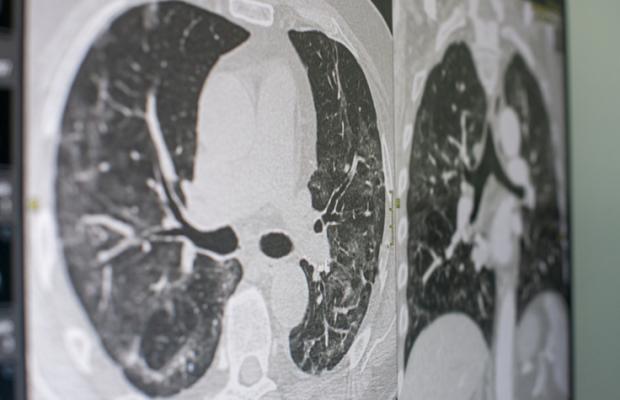
Getty Images
December 22, 2023 — Annual low-dose CT screening has been recently shown to result in high cure rates of over 80%, but methods of conducting a lung cancer screening program vary and best practices have yet to emerge. To address this, the International Association for the Study of Lung Cancer (IASLC) Early Detection and Screening Committee published a perspective that contains considerations for screening program managers to follow. The study is published in the Journal of Thoracic Oncology, the official journal of the IASLC and is available here: https://www.jto.org/article/S1556-0864(23)02369-9/fulltext.
“This report identifies the key components of the regimen of LDCT screening for lung cancer, which include the need for a management system to provide data for continuous updating of the regimen, and provides quality assurance assessment of actual screenings,” said Claudia Henschke, MD, PhD, Professor of Diagnostic, Molecular and Interventional Radiology and Director of the Early Lung and Cardiac Action Program at the Icahn School of Medicine at Mount Sinai in New York. in New York. “Multi-disciplinary clinical management is needed to maximize the benefit of early detection, diagnosis, and treatment of lung cancer.”
The report outlines several recommendations for screening program managers to consider, including:
- Selection of eligibility criteria
- Counseling of screenees
- Smoking cessation
- Selection of the regimen of screening which specifies the imaging protocol and workup of LDCT findings
The report illustrates one important aspect of a lung cancer screening program—timing between screenings. The benefit of LDCT screening depends on detection of small, early lung cancers when they are curable. Increasing the time between screenings leads to larger and later stage tumors as demonstrated by the NELSON results of annual screening compared with longer intervals of two-year and two-and-a-half years.
The report advises that screening programs that include the coordination of clinical, radiological, interventional teams and ultimately treatment of diagnosed lung cancers under screening help determine the benefit of LDCT screening.
Ethical considerations of who should be eligible for LDCT screening programs are important in order to provide the benefit to as many people at risk of lung cancer as possible. Unanticipated diseases identified on LDCT may offer significant benefits through early detection of leading global causes of death, such as cardiovascular diseases and chronic obstructive pulmonary disease, as the latter may result from conditions like emphysema and bronchiectasis which can be identified early on LDCT.
This report identifies the key components of the regimen of LDCT screening for lung cancer which include the need for a management system to provide data for continuous updating of the regimen and provides quality assurance assessment of actual screenings. Multi-disciplinary clinical management is needed to maximize the benefit of early detection, diagnosis, and treatment of lung cancer. Different regimens have been evolving throughout the world as the resources and needs may be different for countries with limited resources.
“Sharing of results, further knowledge and incorporation of technologic advances will continue to accelerate worldwide improvements in the diagnostic and treatment approaches” Dr. Henschke wrote.
For more information: www.iasic.org


 February 16, 2026
February 16, 2026 









